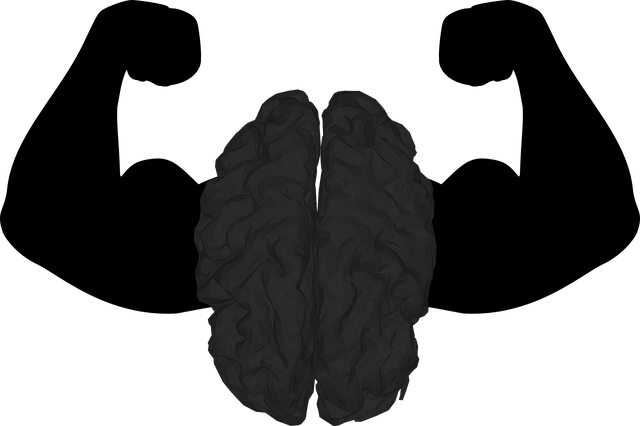Castle Rock Developmental Disability Therapy (CRDDT) emphasizes learning emotion regulation techniques as a powerful tool for individuals with developmental disabilities, helping them navigate emotional challenges and improve their quality of life. By teaching mindfulness, cognitive restructuring, and adaptive coping strategies through evidence-based methods, CRDDT fosters self-awareness and resilience, empowering clients to manage conditions like anxiety and depression. Combining these techniques with regular practice and social skills training, as advocated by Mental Health Policy Analysis and Advocacy, enhances emotional well-being over time, enabling individuals to lead fulfilling lives.
Emotion regulation is a vital skill, especially for individuals with developmental disabilities. This article explores the significance of teaching emotion regulation techniques and highlights the role of Castle Rock Developmental Disability Therapy in this process. We delve into evidence-based strategies, providing practical insights for both therapists and caregivers. From understanding emotional responses to implementing daily skills, learn how Castle Rock therapy offers a comprehensive approach, empowering individuals to navigate their emotions effectively.
- Understanding Emotion Regulation and its Importance for Individuals with Developmental Disabilities
- The Role of Castle Rock Developmental Disability Therapy in Teaching Emotion Regulation Techniques
- Practical Strategies: Exploring Effective Emotion Regulation Techniques
- Implementation and Maintenance: Tips for Incorporating Emotion Regulation Skills into Daily Life
Understanding Emotion Regulation and its Importance for Individuals with Developmental Disabilities

Emotion regulation is a vital skill for individuals with developmental disabilities, offering them a powerful tool to navigate their emotional landscape and enhance their overall well-being. It involves recognizing, understanding, and managing one’s emotions effectively, ensuring they don’t overwhelm or hinder daily functioning. For those in Castle Rock Developmental Disability Therapy, learning emotion regulation techniques can be transformative. These strategies empower individuals to respond to challenging situations with more adaptability and resilience, thereby improving their quality of life.
Understanding how to regulate emotions is crucial for developing inner strength and fostering a sense of self-efficacy. The Stress Management Workshops Organization highlights the importance of teaching these skills early on, as it can prevent or mitigate emotional crises later in life. By incorporating Self-Care Practices into daily routines, individuals with developmental disabilities can build a foundation of emotional stability, enabling them to better cope with stress and adversity. This, in turn, promotes healthier relationships and increased participation in community activities.
The Role of Castle Rock Developmental Disability Therapy in Teaching Emotion Regulation Techniques

Castle Rock Developmental Disability Therapy (CRDDT) plays a pivotal role in teaching emotion regulation techniques, offering specialized support for individuals navigating emotional challenges. This therapy approach is tailored to cater to diverse needs, focusing on mindfulness, cognitive restructuring, and adaptive coping strategies. By employing evidence-based methods, CRDDT helps clients develop resilience and effective management of emotions like anxiety and depression.
Through personalized sessions, therapists guide individuals in understanding their emotional responses and learning mind over matter principles. This process involves identifying triggers, challenging negative thought patterns, and cultivating healthy coping mechanisms. The holistic nature of CRDDT creates a supportive environment, fostering self-awareness and empowering clients to proactively regulate their emotions, ultimately leading to improved mental well-being and enhanced quality of life.
Practical Strategies: Exploring Effective Emotion Regulation Techniques

Teaching effective emotion regulation techniques is a powerful tool for individuals with developmental disabilities, offering them strategies to navigate and manage their emotional experiences. At Castle Rock Developmental Disability Therapy, we emphasize practical approaches that empower clients to gain control over their emotions and foster better mental health. By incorporating Mind Over Matter principles, our therapists guide patients through understanding and regulating their feelings.
One key technique involves helping individuals recognize triggers and develop coping mechanisms tailored to their unique needs. This could include deep breathing exercises, mindfulness practices, or even creative outlets like art therapy. These activities promote emotional healing processes and enhance overall well-being. Through consistent practice, clients learn to respond to challenging situations with resilience, ensuring they can effectively manage their emotions and lead fulfilling lives.
Implementation and Maintenance: Tips for Incorporating Emotion Regulation Skills into Daily Life

Implementing emotion regulation techniques into daily life is a crucial step for individuals seeking to manage their emotional well-being, especially those with developmental disabilities. At Castle Rock Developmental Disability Therapy, we find that combining various strategies can be highly effective. Start by identifying triggers and developing coping mechanisms tailored to your unique needs. For instance, if certain social situations provoke anxiety, consider practicing mindfulness exercises or utilizing deep breathing techniques beforehand.
Regular practice is key to maintaining these skills. Incorporate them into routines; whether it’s a short meditation session each morning or engaging in physical activity to release built-up energy and stress. Social Skills Training can also play a vital role, as interacting with others becomes easier when you’re better equipped to regulate your emotions. Remember, consistent effort and a supportive environment, as advocated for in Mental Health Policy Analysis and Advocacy, will enhance the effectiveness of these techniques over time.
Emotion regulation techniques are invaluable tools for individuals with developmental disabilities, enabling them to navigate their emotional landscapes more effectively. As highlighted by Castle Rock Developmental Disability Therapy, these strategies can be taught and mastered with the right approach. By combining theoretical understanding with practical strategies, as discussed in this article, professionals like Castle Rock Developmental Disability Therapy can empower clients to manage their emotions healthily. Implementation and maintenance tips ensure that these skills become an integral part of daily life, fostering greater emotional well-being and quality of life for individuals with developmental disabilities.












